Key points
Here are 3 key points about the origins of arranged marriage:
- The practice of arranged marriage has existed for thousands of years across cultures and continents
- In many traditional societies, arranged marriages helped reinforce kinship ties between families and allowed elders to guide marital decisions
- Economic, political, and social factors like property transfer, alliances, and tradition often influenced arranged marriages more than personal compatibility
Contents
- 1 Key points
- 2 Introduction to Arranged Marriage
- 3 Definition and Overview
- 4 Historical Context and Significance
- 5 Cultural Variations and Practices
- 6 Origins of Arranged Marriage
- 7 Cultural and Regional Origins
- 8 Social and Political Implications
- 9 Resistance and Change Over Time
- 10 Frequently Asked Questions (FAQ)
Introduction to Arranged Marriage
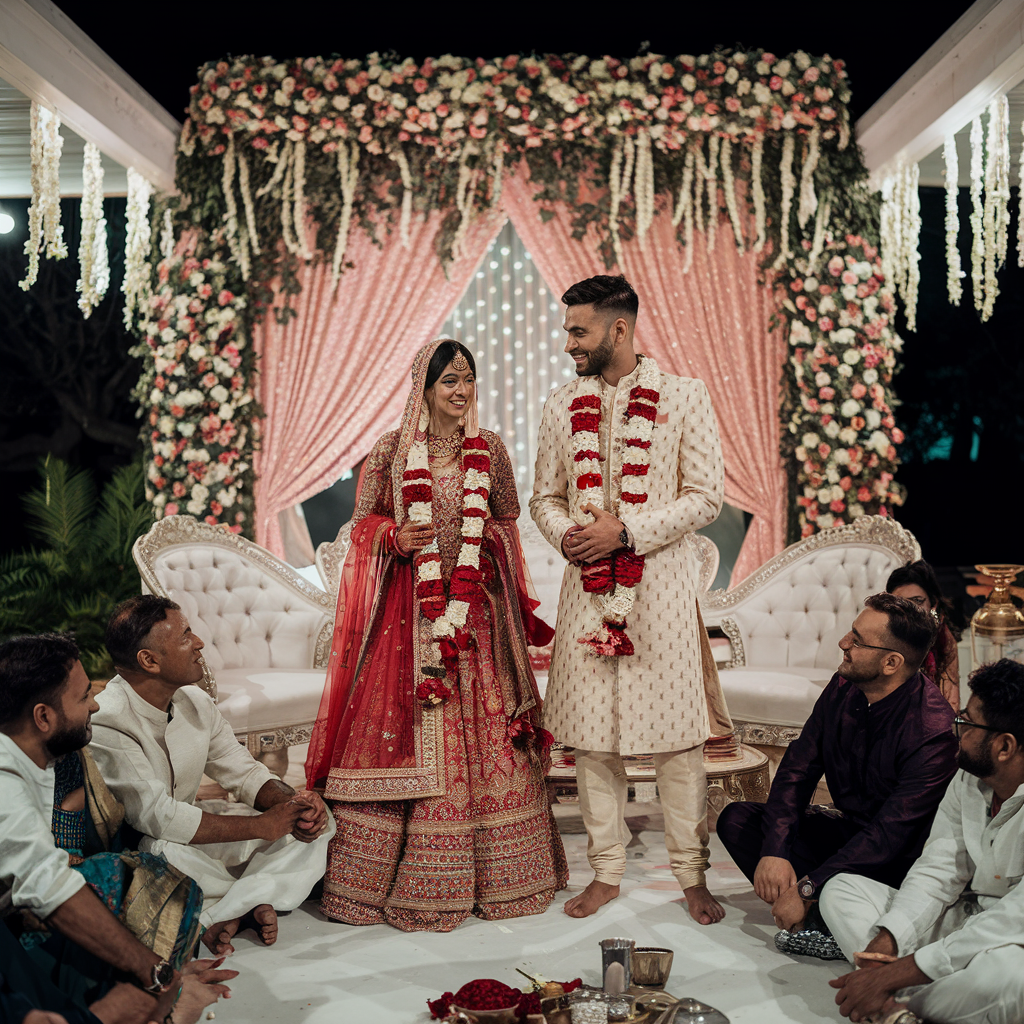
Arranged marriage is something which has been around since a long time. In many cultures, arranged marriage was the most common method to get married. Previously, arranged marriages were quite common but now it seldom happens.
Definition and Overview
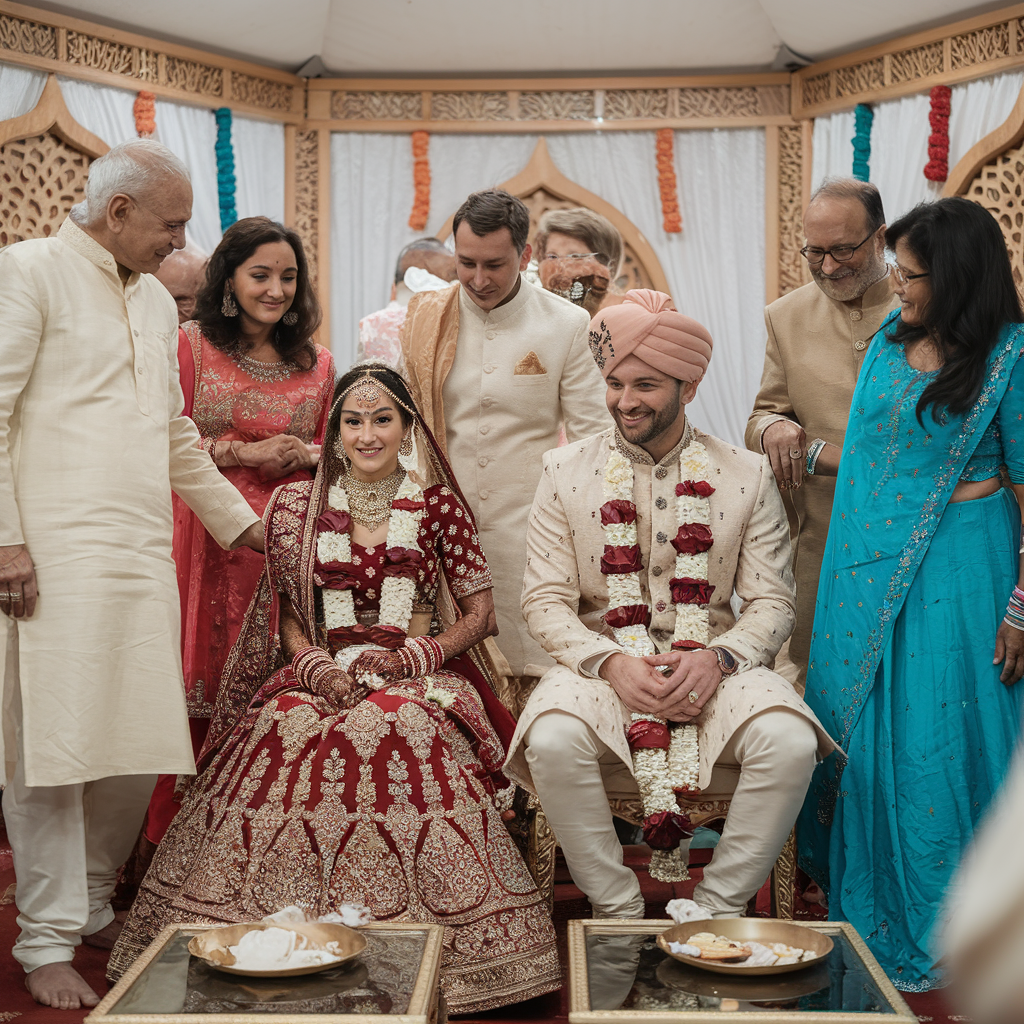
The arranged marriage is when family members decide which boy or girl to marry and not the boy or girl himself. Often the bride and groom do not know each other before the wedding. For generations, a few cultures had a tradition of arranged marriages.
Reasons for Arranged Marriage
There are some major reasons for family marriages. Many parents believe they should have a say in who their children marry because they know them best. Another thing parents want to be sure is that their kids marry someone of the same culture, religion, caste, or social class. Some people also think it strengthens relations between families.
The Process
The arranged marriage process varies between cultures and communities. A lot of times, mothers and fathers or another relative look for someone whom they think would be good for their son or daughter. They’ll help the two people meet and give them the chance to get to know each other. The partners chooses whether to get married or not. Sometimes parents will make you marry someone even tho you don’t want it.
Historical Context and Significance
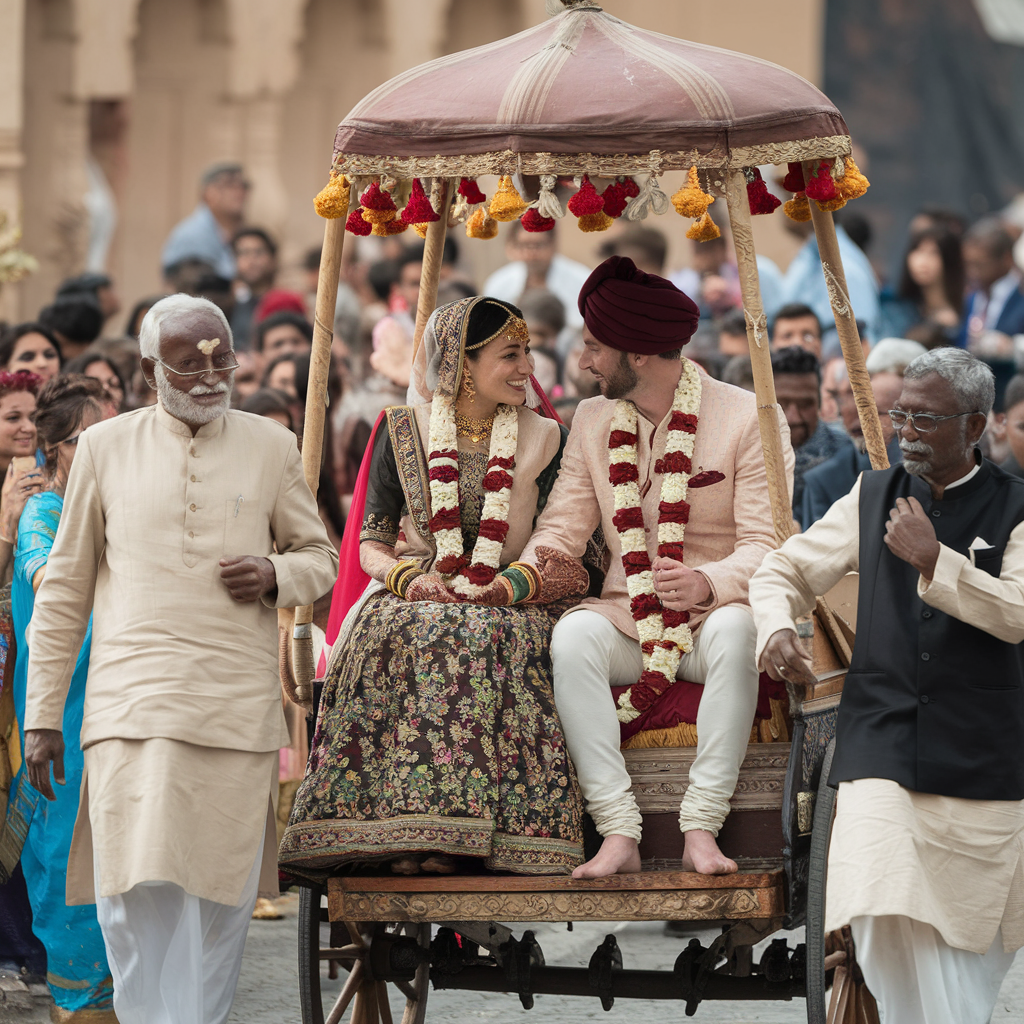
Arranged marriage has been something that has existed for thousands of years. Earlier religions used to practice this a lot. The elders were the people who choose couples for new wed life. People were able to help their community more effectively than before. As society became more modern, people were more open to marrying whoever they wanted. But arranged marriages are still quite common in certain cultures.
Decline of Arranged Marriage
As folks started believing in human rights and women’s rights, these marriages declined. People criticized it for limiting one’s freedom and choice of partner. Arranged marriages got less and less popular as dating and love based marriages took over in many places of the world.
Persistence of Tradition
Some cultures still hold on to arranged marriage despite the modern views on marriage. People find it hard to let go of tradition, thinking it wise to do so. But nowadays, a child gets to input and an opportunity to know their partner beforehand, making it different from the earlier ways. But to most who are used to “love marriage,” it is controversial.
Cultural Variations and Practices
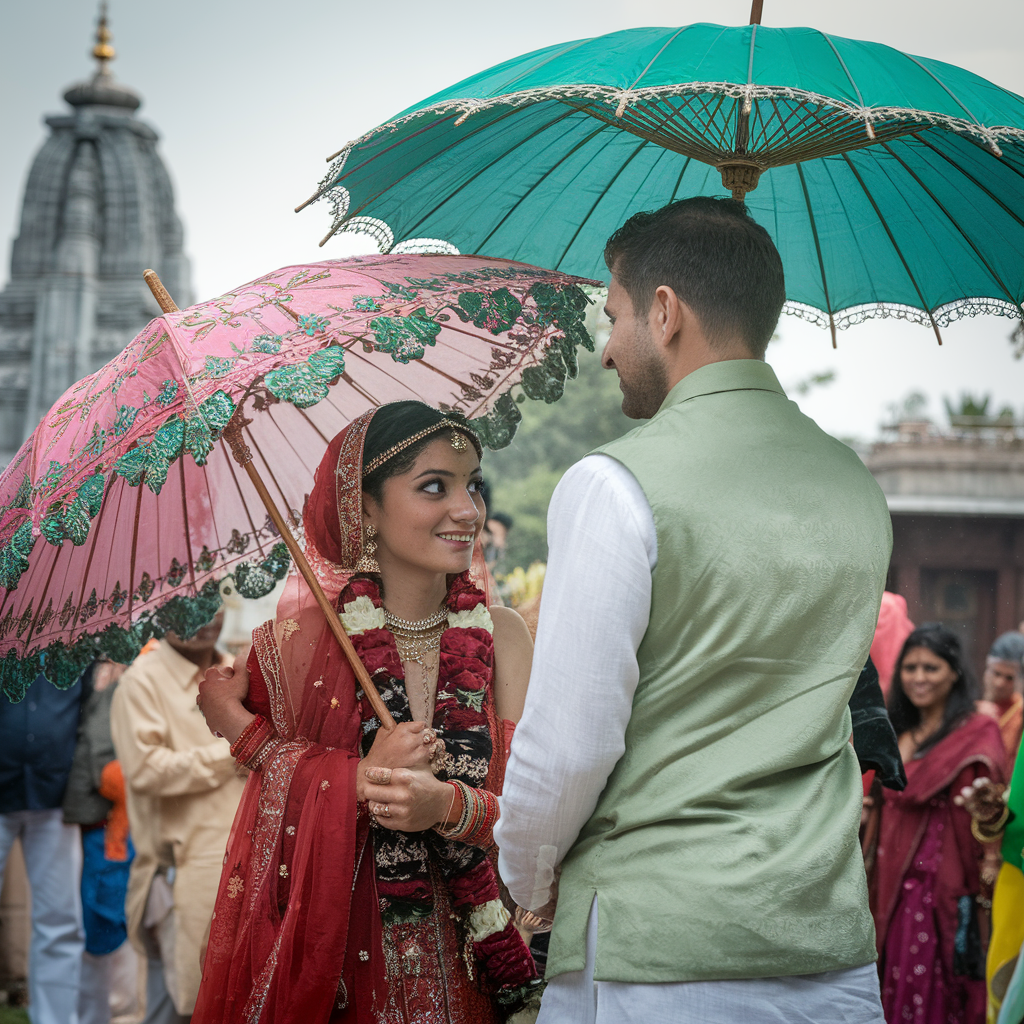
There are many types of arranged marriages. In different cultures, there are different customs about how spouses are chosen and when they marry. Also, different cultures have different views on the role of spouses in a marriage. Some key examples include:
India
For centuries, India has undergone arranged marriages. Searches and advertisements for finding a life partner are being conducted. Families often search for life partners within their own caste, religion and class.
Middle East
A lot of Middle Eastern communities traditionally got arranged marriages. People considered these as the means to maintain connections and culture. While some places still do this, their views are changing, especially in cities. Women still feel tremendous pressure to consent
Sub-Saharan Africa
Back in the day, African societies practiced arranged marriage. But Christian and colonization changed these views. In certain countries, matchmaking is still a thing. Parents can also arrange introductions or marriages, particularly in rural areas. But getting married under duress is now against the law.
Orthodox Jewish Communities
Some Jew communities have arranged marriage called shidduchim A matchmaker is someone who finds couples based on culture and religion along with family standing.
The couple meets to decide whether they want to get married. Divorce is not an option so make it work.
Origins of Arranged Marriage
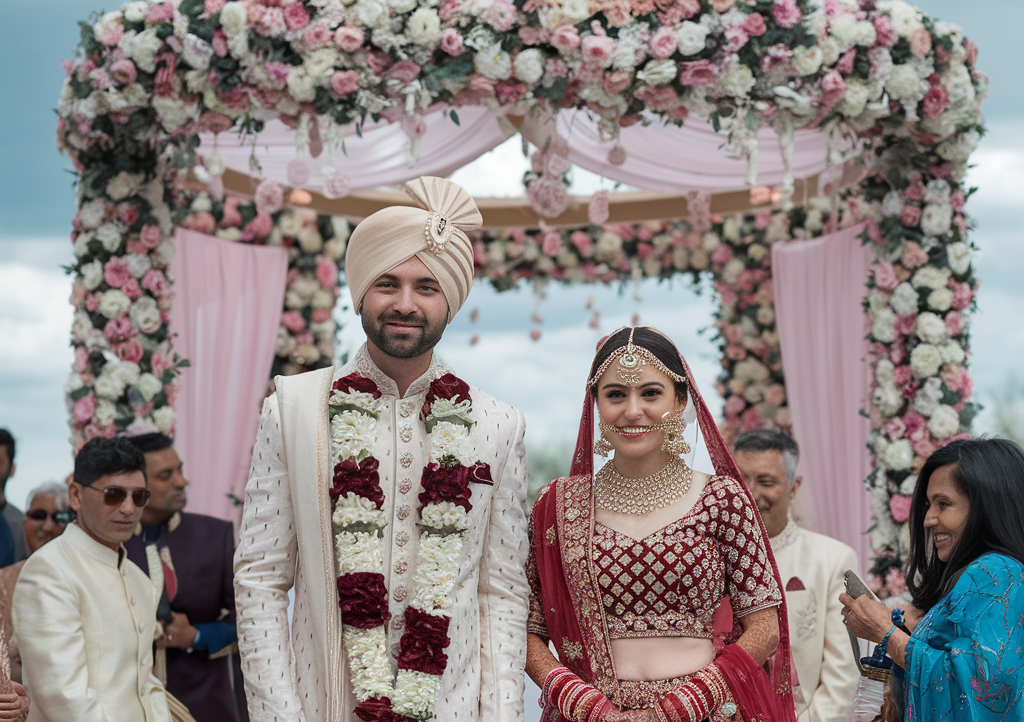
In many cultures, marriages have been arranged for a long time. This has been going on for 1000s of yrs. In the past, parents used to decide marriages for their children because they wanted their children to have a good life partner. People got married to create allies with each other’s families. Back in time, it was about politics and power. It allowed families to gain additional wealth, estates, or status.
Anthropological Perspectives
They say arranged marriage is helpful for society’s smooth functioning, which is why it has remained. When your parents look for a partner they’ll look for someone responsible who will be a good partner. They also pair individuals with similar backgrounds. This helps to keep the community together. Anthropologists believe arranged marriage keeps society in order.
Evolutionary Theories
According to some evolutionary theorists, arranged marriage exists as it aids in the replication of genes. The people your parents choose as mates must be healthy so that you are born a healthy baby. They also connect individuals of the same social class. This ensures the transfer of wealth and status to the next generation. From an evolutionary perspective, arranged marriage is beneficial for reproduction.
Socioeconomic Factors
Marriages are rooted in economics and social standing. For poor families, it is a way to move up the social ladder. When parents marry their child to a rich person, one social status rises. Rich families want to keep their property and status within the family. They get their children married to maintain or protect wealth.
Religious and Spiritual Influences
Most religions are for arranged marriage. Families and elders should control marriage and leaving this decision to parents upholds traditional values of marriage. Some religions say their god or gods want people to have arranged marriages. For many people, it’s also about spiritual beliefs.
Cultural and Regional Origins
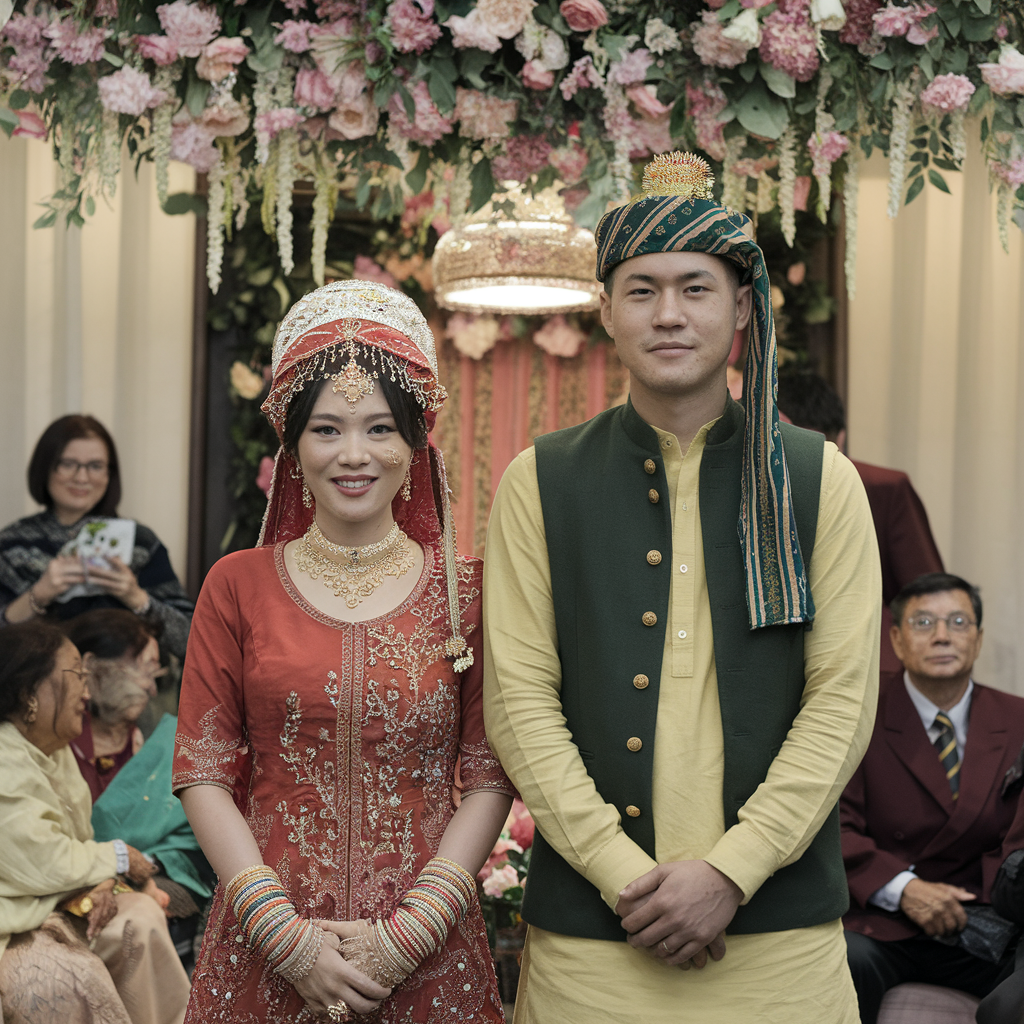
Places around the world have arranged marriages for a long time. Throughout parts of Asia, the Middle East, and Africa, arranged marriages dominate, although practices differ.
Asian Traditions and Practices
Many cultures in Asia, arranged marriages are regarded as a family matter. Parents lead the way in either marriage as a means of choosing spouses. In these marriages, the marriage of one child will strengthen the bond between two families. Also, it ensures social status, educational background, values and more are matched. It is common for arranged marriages to take place in countries like India, Pakistan, Japan, and China.
Middle Eastern Historical Context
Arranged marriages in the Middle East are one of the oldest traditions and cultures. Many families in the Middle East arrange the marriage of their children due to family honour, social status and financial security. Family ties become strong with these types of marriages.
European Historical Arrangements
In Europe, noble and royal families usually have arranged marriages. Wealthy families used marriage as a political tool to develop lining and power. Though they’re not so common anymore, some traditional communities still practice arranged marriage.
African Marriage Customs
Many African societies have a tradition of arranged marriage. Elders usually take charge of marriage arrangements and selection of the spouses based on family connections, dowry and bride price. Many people in both rural and urban settings in Africa keep doing these traditions. Apart from the modern courtship.
Social and Political Implications
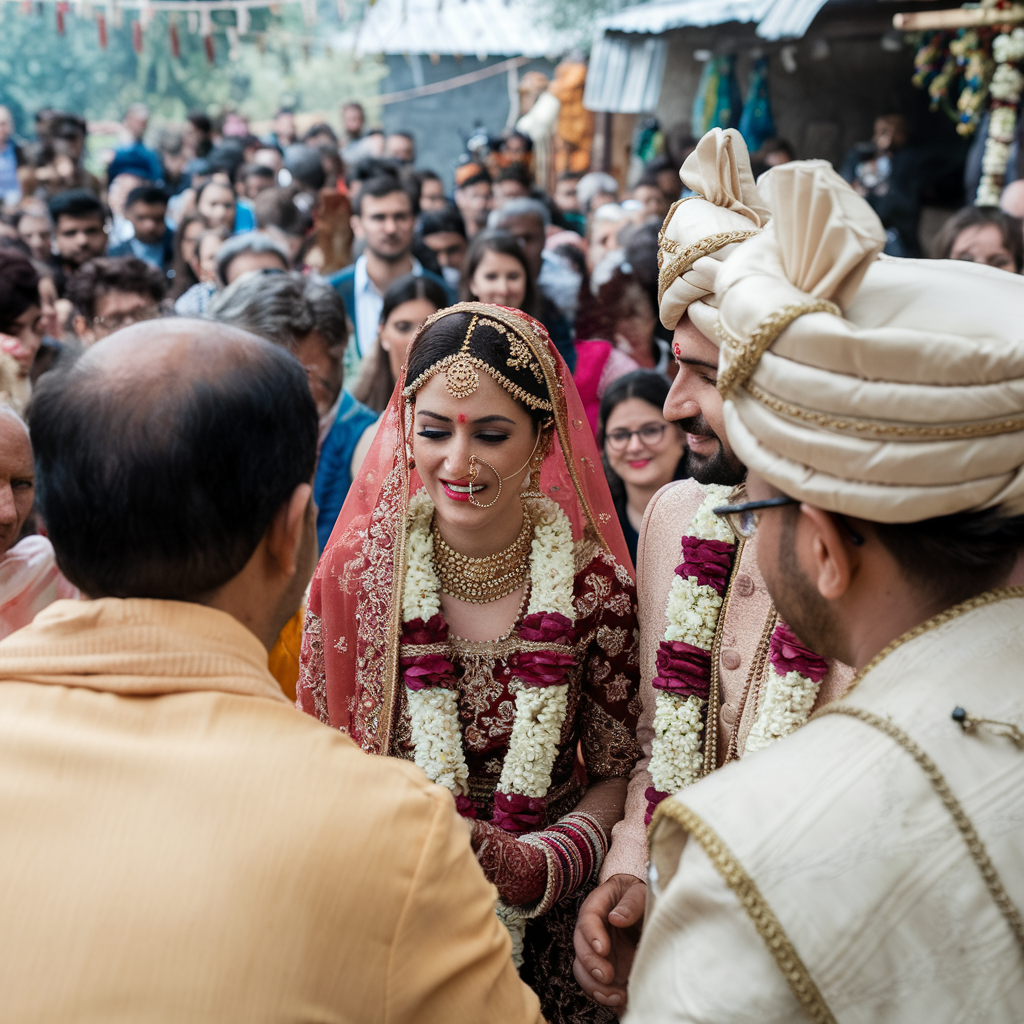
The effects of arranged marriage on society and politics They can change families, class, and who has the power. In societies where arranging marriages is the norm, it shapes social values and laws.
Power Dynamics and Family Structures
When it comes to arranged marriages, the parents and the elders take the decision. Older generations get to rule the place. Youth lack the power to shape their lives. People cherish obedience and conformity more than independence. Big families living with grandparents are common. Family loyalty is more important than individualism.
Gender Roles and Expectations
Arranged marriages disturb gender equality. Women settle down early and focus on household things. Men earn money to feed the family. Strict ideas about gender curtail options and power. But adaptable couples can create egalitarian marriages contrary to this social convention.
Economic Impacts and Class Systems
Marriages divided by class. Parents get together and get matching for social status as well as wealth. Marriage offers little chance of advancement. On the other hand, it creates financial dependence.
Resistance and Change Over Time
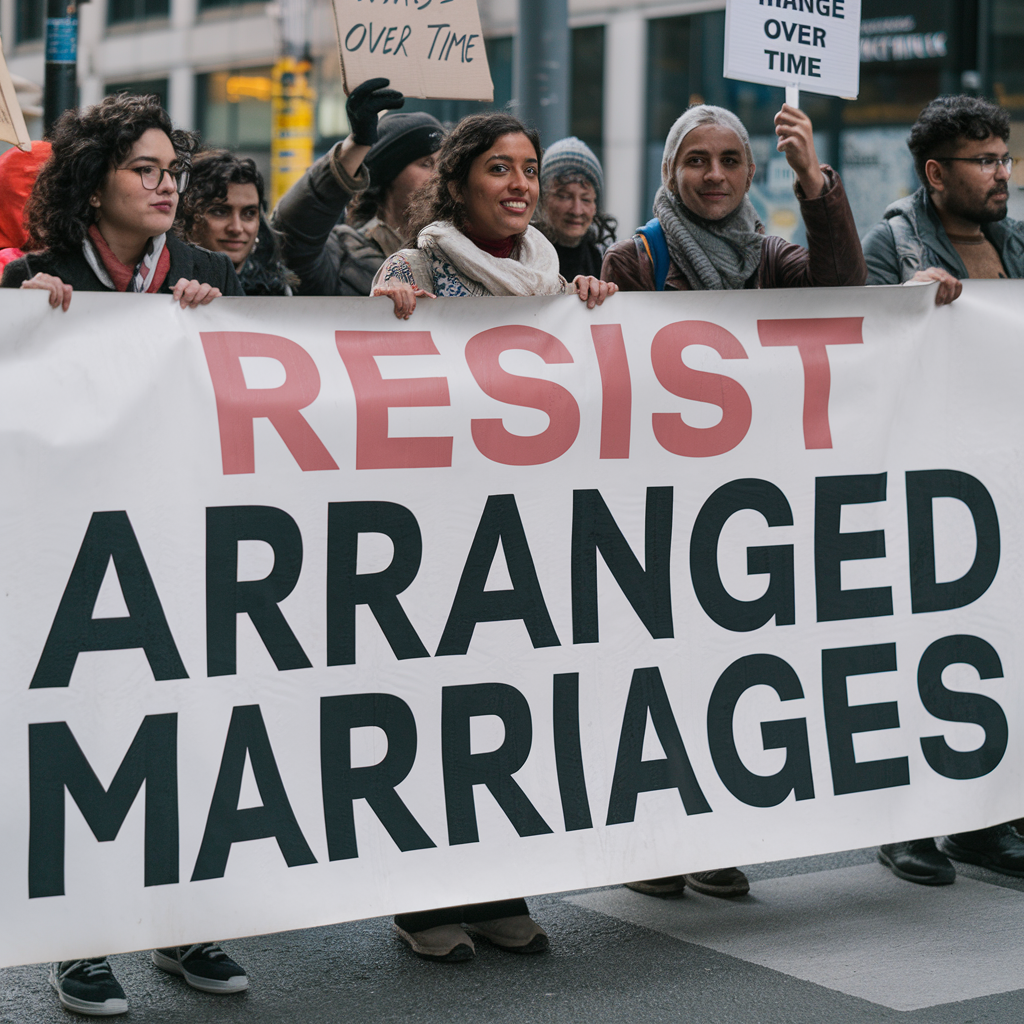
Many people have been critical of and have resisted arranged marriages for a long time. Long ago, unjustified criticism against arranged marriages used to be considered taboo, resulting in alienation by one’s family or community. Some bold voices have always defied history.
More and more people, particularly women, have come out over the decades to share tales of exploitation or misery in arranged marriages. Globalisation and technological process spread awareness about the issues related to forced marriage. Almost every country now legally prohibits forced marriages and arranged marriages and condemns the former till date.
Modern Critiques and Movements
Today, various organizations are raising their voice against the wrong practices related to arranged marriages. Organizations such as Girls Not Brides are striving to end child marriage on a global canvas. Some people favor women’s right to choose whom to marry.
Some organize community chats to change social attitudes. If you are trying to avoid a forced marriage, there are support networks that can offer you legal services and even shelter to get away from your family. But is still a lot of resistance to canceling arranged marriages in socially conservative settings.
Impact of Globalization
Globalization has connected the world in a way that creates human rights awareness for arranged marriage. Fast spread of impacted people’s stories through social media campaigns. Western societies greatly stress individual choice in marriage often at odds with the arrangements made by parents.
Women all around the world are finding more economic opportunities. Because of this, they seek out education and jobs that defy cultural standards about marrying early or only to start a family.
Legal and Policy Reforms
Over the last several decades, laws banning forced marriage, child marriage and marital rape have been on the rise, especially in developing countries. Beliefs about how parents should act depend on the law that applies. Some countries outlaw arranged weddings. People make sure the marriage is done on free consent of the parties.
Many traditional communities still debate the effectiveness of legal reforms. More work is often needed to change the social views that would underlie them.
Future Directions and Trends
In the future, more individualism and greater women’s empowerment may lead to a rising of ideas around marriage across the world. However, arranged marriage will continue in many cultures, especially where extended families have control over young people’s decisions.
Maybe the plan will move towards joint matching of parents and children. The stigma against those who go against arranged marriage will lessen. In the end, the ability to choose, one of the most intimate matters in life, will prevail, even though arranged marriage customs will be modified and continued.
Frequently Asked Questions (FAQ)
How does the caste system influence arranged marriage in India?
The caste system plays a major role in arranged marriages in India. Families often prefer to arrange marriages within the same caste to maintain status and tradition.
What role did arranged marriages play for European royalty?
Arranged marriages were commonly used to form strategic alliances between royal families in Europe for political and territorial gain.
How does family impact arranged marriage practices?
Family involvement is central to arranged marriage in many cultures. Parents and relatives often take the lead in selecting and approving potential spouses.
How do economic factors influence arranged marriage?
Arranged marriage has traditionally been used to improve or maintain socioeconomic status through strategic pairings.
What are some critiques of arranged marriage?
Critiques focus on lack of consent and choice, gender inequality, and reinforcing social hierarchies.
How does culture shape ideas about arranged marriage?
Views on arranged marriage are heavily influenced by cultural traditions, values and norms regarding family, gender roles and marriage.
What are some religious influences on arranged marriage?
Many religions have traditional teachings and practices supporting arranged marriages, especially among conservative followers.
How has globalization impacted arranged marriage?
Globalization has exposed many cultures to new ideas and values, leading to reduced arranged marriages in some areas.
What are some signs of change in arranged marriage practices?
More focus on consent, greater input from brides and grooms, and shifts toward semi-arranged marriages.
How do arranged marriages vary by region?
Arranged marriage practices differ by place based on cultural norms, economic factors, and the influence of tradition.

I am a free-spirited author with the focus of relationships, travel, mental health, and womanhood. I am still new to the writer scene but am excited for the journey that awaits.